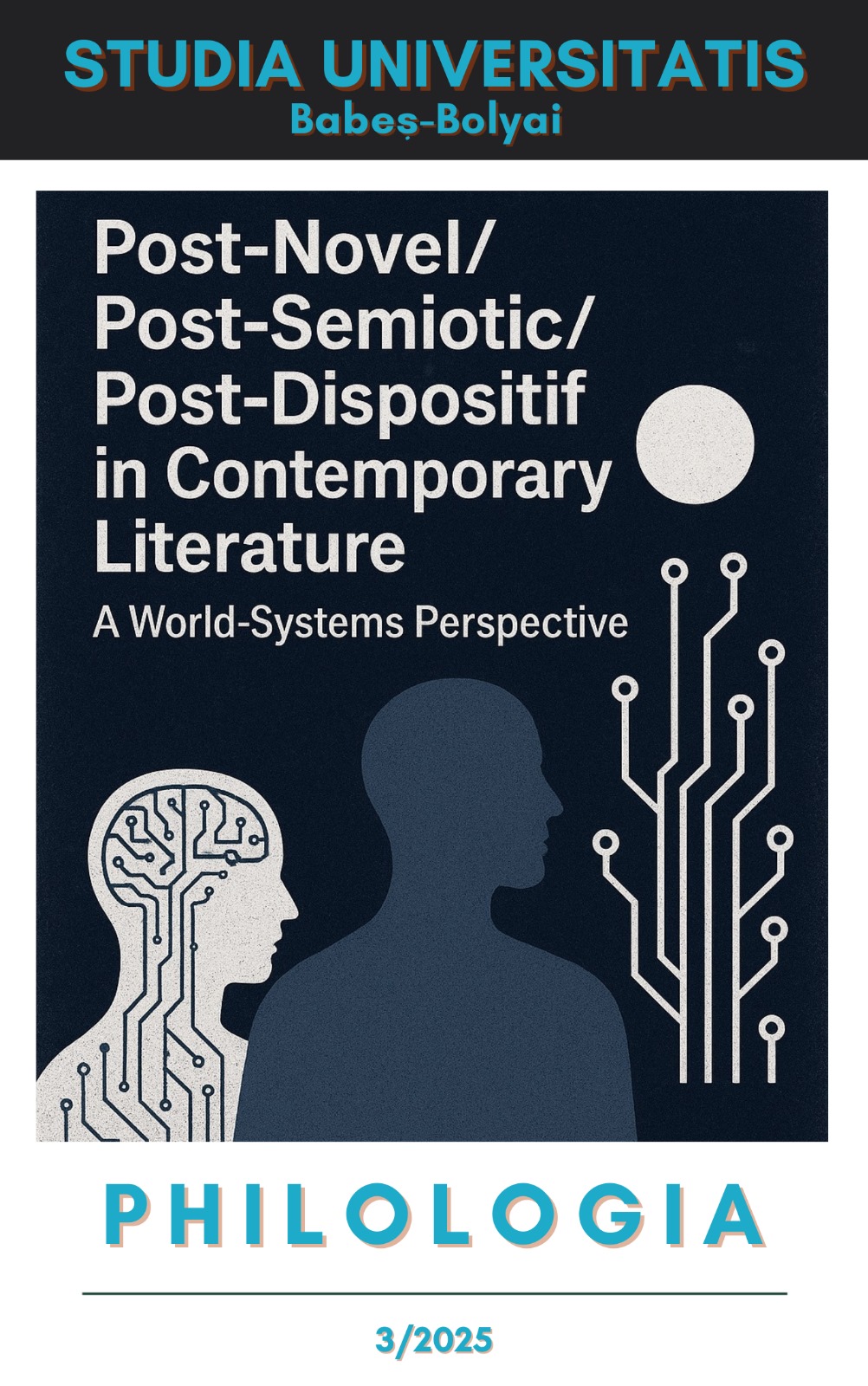INTRODUCTION: POST-NOVEL/POST-SEMIOTIC/POST-DISPOSITIF IN CONTEMPORARY LITERATURE. A WORLD-SYSTEMS PERSPECTIVE
Abstract
Many of the theoretical fundamentals developed for literary and cultural studies throughout the twentieth century have become less efficacious. In recent decades, scholars have, indeed, investigated the transformations of storytelling and cultural consumption in the digital age. However, this issue looks to further explore the future of literary and cultural studies from a world-systems perspective with a focus on the alterations of novelistic narratives in the larger context of the supplanting of liberal, humanistic, sense-making mechanisms by computational regimes of meaning. In this context, we would like to investigate 1) the decline of the category of the “novel” for long-form fiction, 2) interpretive methods grounded on semiotics, and 3) the claims for truth-formations through Michel Foucault’s notion of the apparatus/dispositif. Today we assume all long fictions are novels because of the way this form so adeptly housed and reconfigured liberalism’s divisions. The novel could promote public-oriented national imaginaries and fictions of manifest destinies while plumbing the depths of privatizing desire by listening for interior signals. As liberalism promoted the self-enacting individual as the bulwark against the tyranny of the majority, the novel promoted the corresponding ideals of autonomous authors’ unique genius and stylistic signatures. Such was the novel’s success and dominance of liberal print culture that it managed to marginalize other forms of narrative, making them residual (the epic), or pushing them into the social subordination of “genre,” understood as the realm of para-literature and pulp or lowbrow production. Yet, all the cultural languages that were once dominant lose their magnetic authority. The novel today, for instance, is now shaped by its nemesis through what is called the genre turn, wherein prestige writers adapt the para literature of supernatural, fantasy, and science-fiction as a form better equipped to register and respond to the current moment.
Downloads
Published
How to Cite
Issue
Section
License
Copyright (c) 2025 Studia Universitatis Babeș-Bolyai Philologia

This work is licensed under a Creative Commons Attribution-NonCommercial-NoDerivatives 4.0 International License.



